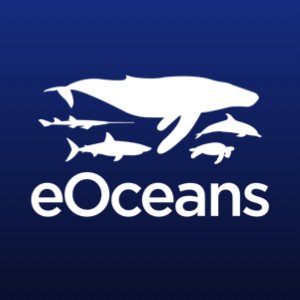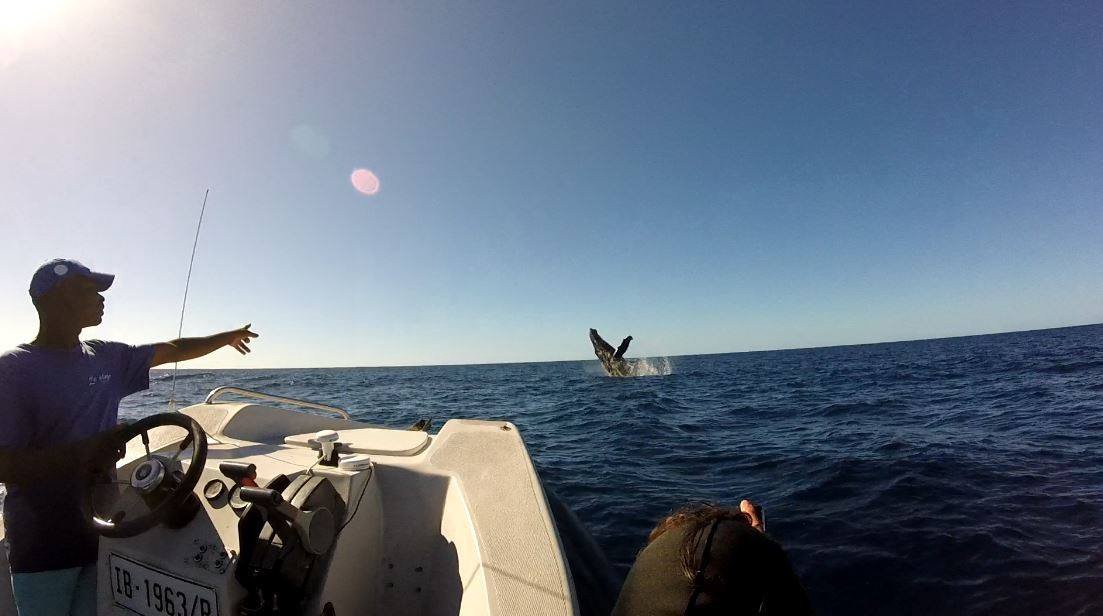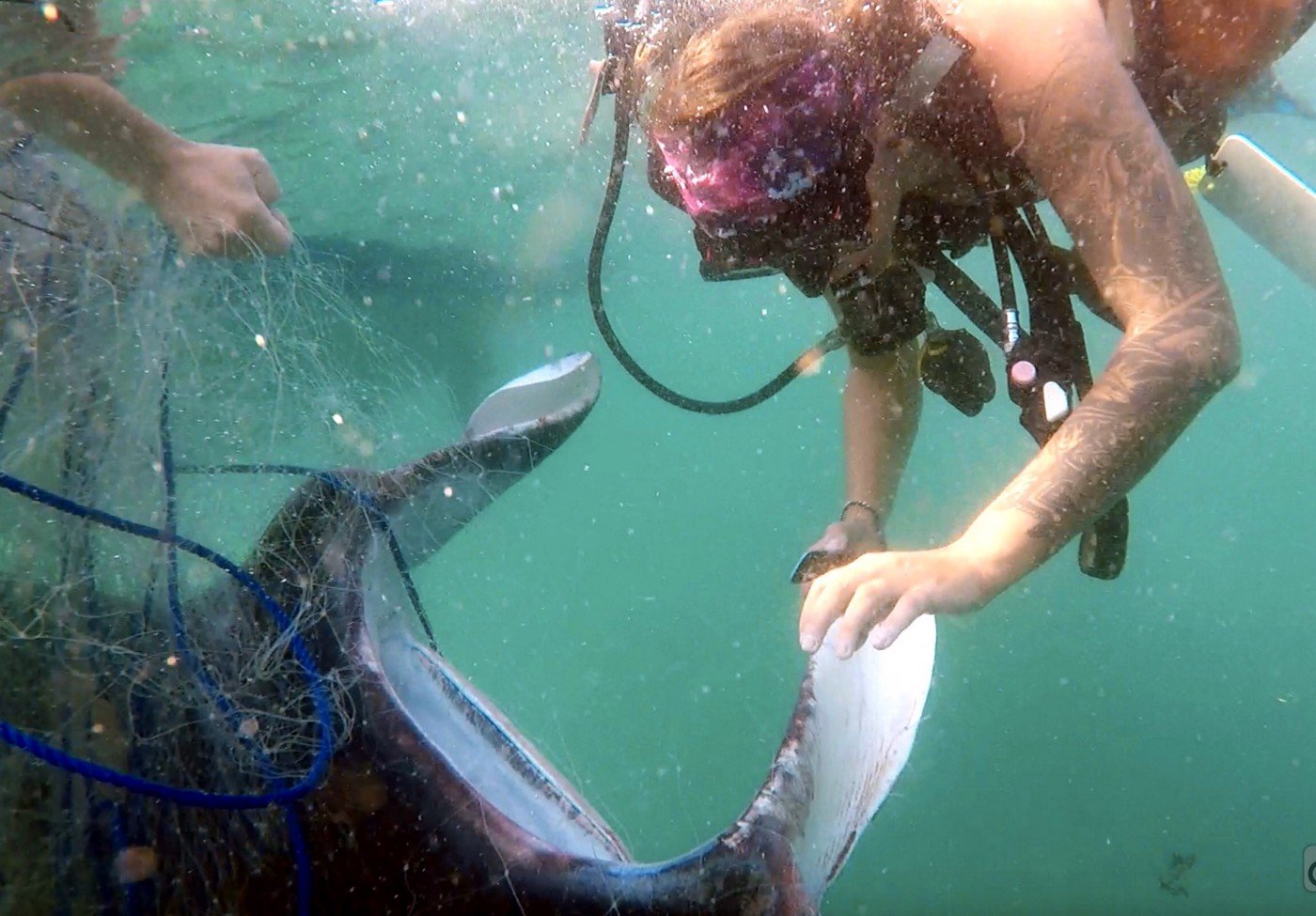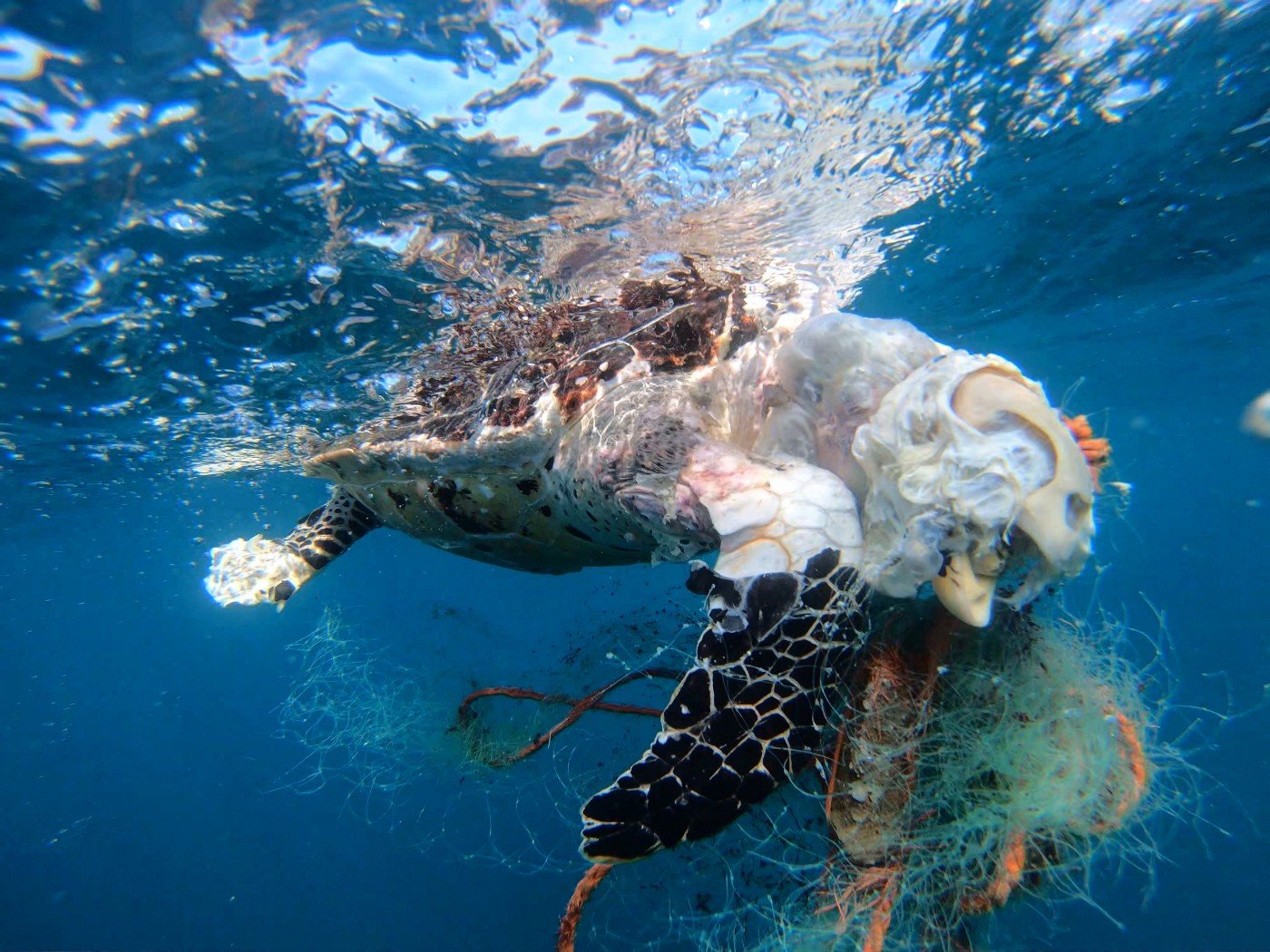Rapid and radical redistribution and democratization of ocean knowledge and science resources can grow the blue economy while saving ocean health and lives. The COVID-19 pandemic is the perfect opportunity to finally create this path that we desperately need. All hands are needed on deck to make this happen.
Skipper, Pedro from Zavora Lodge, has been taking tourists and researchers out for over 10 years, providing an experience of a lifetime with whales, sharks, turtles, and manta rays. (credit: Marine Action Research, July 2019)
This year, billions will be spent on ocean science and conservation — budgets were set before the COVID-19 pandemic took hold.
With travel restrictions for the foreseeable future, scientists are distressed by the lost field seasons — a break in longitudinal data is significant, especially when the ocean is rapidly changing. In reaction, researchers are calling for more investment in remote science operations, such as autonomous underwater vehicles (AUVs) and satellite surveillance to collect ocean data.
But, more remote science is not what we need right now.
We already know the ocean is rapidly changing due to climate change, loss of biodiversity and biomass, and increased pollution — leaving communities and businesses vulnerable.
What we desperately need now is the widespread distribution of resources and expertise. We need to break down silos and speed up discoveries. We need literacy and acceptance of ocean science with results being accessible to those afflicted by ocean change. We need to arm communities with the knowledge and resources to mitigate and adapt to change. We need dialogue, collaboration, and policies that are fair with cross-sector communities working together to share the ocean — their collective “commons”. We need novel systems that integrate science, experience, and indigenous wisdom while protecting people and promoting resilient and flourishing coastal communities.
Remote science can’t do any of this alone.
Right now, during this pandemic, there is an opportunity to reinvent the way that ocean science is done for the future. It needs bold ambition, and many will reject it, but innovating ocean science to make it more inclusive and collaborative is the most humane and rational way to save communities and the ocean while continuing to grow the Blue Economy.
In pre-covid days, guide and researcher Nakia Cullain, shares a moment with a manta ray while gathering important ecological data (credit: Marine Action Research, July 2017).
Impact of the shutdown on communities and the ocean
Today, 10 months into the global shutdown, millions of ocean-going vessels remain parked. Field guides, those who are the ocean explorers, educators, eyes on the sea, and experts of local ocean conditions, are homebound. These people have decades of legacy knowledge and know the ocean better than the back of their hands. They know their ocean far better than I, a trained marine scientist, will ever know their part of the ocean.
Consider the cost of tourism guides not going to sea for this extended period of time.
Before the pandemic, guides were visiting their sites daily, for decades. This shutdown is not just a lost field season or a few paychecks or jobs. The consequences of a diminished tourism industry and the absence of guides and tourists on the ocean extend farther than most comprehend.
Some scholars have commented, hypothesized, and published on how the marine environment will “finally get a break from people”; they’re calling it the “anthropause.” The global “Our Ocean in COVID-19” project, which I’m conducting alongside a consortium of other scientists, ocean-based businesses, and field observers, set out to study just that. The results have already been shocking.
In some countries, more than 90% of marine tourism companies have shut their doors. Many are unlikely to reopen.
Consider the weight of this.
In pre-COVID days, guide and researcher Nakia rescues a female manta ray from a gillnet. “She had a lot of damage, but she swam away gracefully, but not before circling back to say thank you!”. (credit: Marine Action Research. June 2018).
Loss of tourism is immense
In Mafia Island, Tanzania, this was the first generation to be employed and have access to higher education thanks to a unique tourism collaboration between Chole Mjini and The Tribes Foundation. This dream, and its associated benefits, will be delayed by decades.
Over the last couple decades, in this community and thousands of others like it, there was a well-intentioned shift from fishing to tourism — a live shark or coral reef was worth more than a dead one in both economic and ecological terms. But the mono-economy that ensued prevented the creation of a diversified economy, including sustainable fisheries.
Now, for the first time in decades, people are deploying bomb and cyanide fishing — blasting reefs to catch a meal or make a few dollars on the illegal market. Distant and foreign vessels are fishing hard inside protected areas while there are no tourists to deter these activities. Nets are draped across reefs, scars left in seagrass beds, and sensitive habitat is being destroyed to take vulnerable fish and other animals — it will take decades to centuries to heal.
In COVID days, survey effort has greatly diminished the possibilities of rescue — like this endangered green turtle caught in a gillnet. (credit: Marine Action Research. August 2020).
People don’t fly halfway around the world for a restaurant or hotel, they do that for an experience that includes seeing wildlife like in nature documentaries. Will they visit for what remains after the pandemic has passed?
Cascading benefits of economies that work with Nature
Ocean assets are valued at $24 trillion and provide the essential products and services that support the growing blue economy. These assets are under additional threat without proper monitoring and deterrents.
The opportunity for high knowledge production and conservation value in tourism is often overlooked. Tourism guides, the good ones, take tens of millions of people out to the ocean each year, introducing them to the ocean that they know better than anyone else.
They provide education and outreach opportunities, and experiences of a lifetime. They survey the ocean. They monitor the ocean. Their activities not only influence their customers, who carry their experiences with them forever and share them with their social networks, but they also provide wealth for their communities, knowledge to scientists, and they keep illegal and unsustainable fishing at bay. Their experiences can inform policy and management decisions.
The damage done today in marine and coastal communities, including inside MPAs, which provide “Hope Spots” for the future, are being damaged to a point where they may not serve their purpose.
In COVID days, fishing inside protected areas is commonplace in the absence of tourism. Pictured, a pregnant bull shark caught within the Bazaruto Archipelago National Park (credit: Nakia Cullain. August 2020).
There are cascading benefits of economies that work with Nature. We were, pre-covid and supported by the growing blue economy, in the process of shifting from short-term profits to long-term abundance. But, this can only continue if we act quickly enough and with a collective purpose to keep communities and essential ecosystem services alive.
An opportunity
I’m calling on my colleagues, businesses, governments, and philanthropic foundations to scrutinize how budgets are being spent and to pool and spread available financial resources and expertise to support ocean science, conservation, tourism, communities — and lives.
Researchers cannot travel to far off lands to collect data, but we can use our expertise to train willing and able guides to be field scientists, collect data, interpret trends, and co-develop knowledge and mitigation strategies.
This is an opportunity.
It’s an opportunity to finally have protocols and standards in sampling methodology, data, and metadata that people can understand and use; To make results and information accessible across language and literacy levels; To spread science and knowledge wealth while also financially helping out the guides who are dependent on and invested in the oceans for their lives and livelihoods.
We have the technology and tools to make this happen — universities and colleges are all training remotely now. It is possible. We have to find the will to make it happen.
I don’t have all the answers, but I do have suggestions: Researchers can partner with local or distant tourism businesses, focusing on those that have demonstrated interest in science and sustainability. Portions of marketing and research budgets can help get boats and guides back out to sea to collect data and lead restoration efforts. Students and early-career scientists can work with the data generated to accelerate careers, break silos, build collaboration networks, and disperse knowledge. Media companies and larger businesses could sponsor these projects to increase capacity and visibility. Influencers can join and share science-based messages. And, those already invested in remote science can supply training, equipment, employment, and data products to coastal communities that are in great need of information for sustainable development.
Personally, I have already donated more than thirty eOceans’ “Teams”, including socio-ecological analytics and reports, to early-career scientists in more than 25 countries to research the impact of the pandemic on the ocean and coastlines in their country. Thousands of more studies are needed to investigate and mitigate everything from the impacts of plastics, illegal fishing, munitions, and invasive species to the myriad of issues associated with climate change.
More than ever, we need all hands on deck to save the blue economy, oceans, and lives.
Together, we can end the “century of undersampling” that dismayed Walter Munk, while also improving lives, science and conservation capacity, and the ocean.
I’m ready to pull up my sleeves to make this happen and want to hear from you if you want to be part of creating this path that the world urgently needs.
In COVID days, guide and researcher Nakia Cullain, conducts research from shore — prohibiting underwater data and rescues. (credit: Marine Action Research. August 2020






